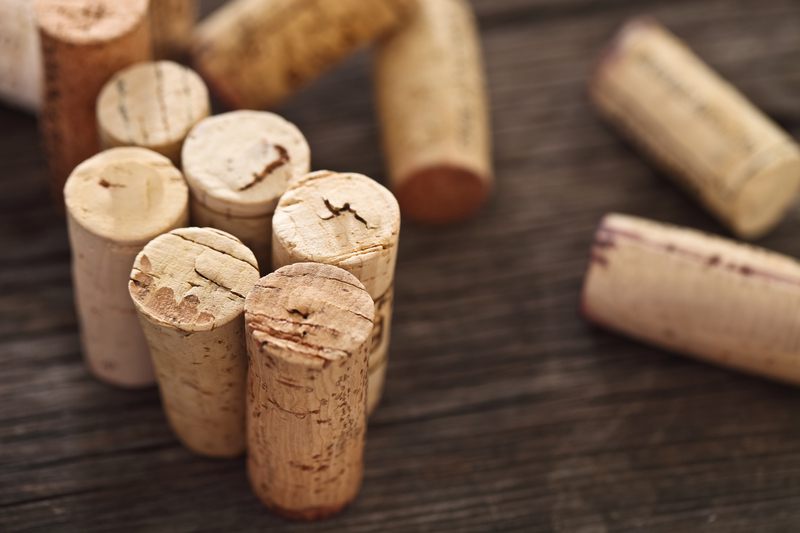Where to Take Worn-Out Pots and Pans for Recycling: The Ultimate Guide
Are your kitchen cupboards overflowing with old cookware? Wondering what to do with those worn-out pots, pans, and frying pans? Instead of sending them to the landfill, discover the various options for recycling pots and pans and give your cookware a second life while helping the environment.
Why Should You Recycle Old Pots and Pans?
Cookware recycling isn't just about decluttering your kitchen! Pots and pans are typically made from valuable metals such as aluminum, stainless steel, or copper, which can be repurposed into new products. Proper pots and pans disposal helps:
- Reduce landfill waste: Metal takes decades or even centuries to break down.
- Conserve natural resources: Recycling metals consumes far less energy than extracting new ores.
- Lower greenhouse gases: Recycling helps reduce the carbon footprint.
- Support the circular economy: Old materials get new life, benefiting the economy and the environment.

Can You Put Old Pots and Pans in the Recycling Bin?
It's important to know that most local curbside recycling programs do not accept cookware due to the shape, materials, and non-metal parts on pots and pans. The handles, coatings (like nonstick surfaces), or composite materials can complicate recycling. Always check with your municipality before placing cookware in the regular blue bin.
Best Places to Take Worn-Out Pots and Pans for Recycling
**So where should you take those retired culinary warriors?** Here are the most effective and eco-friendly options for recycling old pots and pans:
1. Scrap Metal Recycling Facilities
The scrap yard is the best place for pots and pans recycling. These facilities accept cookware made from aluminum, stainless steel, cast iron, and copper--even if it's rusty, dented, or missing handles. Here's what you should know:
- Preparation: Remove plastic, rubber, or wooden handles and discard non-recyclable parts.
- Coated cookware: Some scrap yards accept nonstick pans, but ask first since Teflon can contaminate the scrap stream.
- Separation: Sort your metals (aluminum, steel, copper) if possible for easier processing (and sometimes higher payouts).
Find a local scrap metal recycler by searching online for "scrap metal recycling near me" or using recycling locator tools offered by environmental organizations.
2. Municipal Recycling Events and Drop-Off Centers
Many communities host bulk recycling events or have dedicated recycling centers that accept "hard to recycle" items like cookware a few times per year. Contact your local waste management authority or visit their website to see if there's a place for old cookware recycling nearby.
- Check accepted materials: Not all centers take cookware, so confirm in advance.
- Prepare your items: As with scrap yards, remove non-metallic parts to ensure smooth processing.
3. Manufacturer Take-Back Programs
Some cookware brands are joining the sustainability movement by offering recycling take-back programs. Brands like Calphalon and certain others accept used nonstick pans and recycle them responsibly. Here's how it works:
- Check eligibility: Read the manufacturer's website for details on what they accept and how to mail in your old pots and pans.
- Follow shipping instructions: You may need to pay for postage, but some brands cover it.
Even if you didn't buy your cookware from a particular brand, check if their take-back program is open to all.
4. Donation Centers and Thrift Stores
If your used pots and pans are still usable (even with some cosmetic wear), consider donating them to charities, thrift shops, shelters, or community centers. Habitat for Humanity ReStores, Goodwill, and Salvation Army often accept gently used cookware.
- Condition check: Only donate cookware that is safe and functional.
- Upcycling potential: Some organizations repurpose or recycle items that can't be directly resold.
5. Art and Craft Centers
Some creative reuse centers and schools accept old pots and pans for art projects, upcycling, or educational activities. Search for "creative reuse" + your city to find options. These places transform old pans into planters, art installations, or percussion instruments!
6. Specialty Recycling Programs
Nationwide organizations like TerraCycle sometimes offer recycling programs for hard-to-recycle items. Check their website or similar services for special mail-in programs for nonstick pans or other types of cookware.
How to Prepare Pots and Pans for Recycling
Proper preparation ensures your old pots and pans find the right recycling stream. Here's how to get them ready:
- Remove all food residue: Wash the cookware thoroughly.
- Disassemble where possible: Take off plastic, silicone, wooden, or glass parts. Only the metal should go to scrap recyclers.
- Check for special coatings: Nonstick or enameled cookware might not be accepted everywhere -- inquire before dropping them off.
- Bundle metals separately: Group together similar metals (aluminum, steel, copper) if requested by your local recycler.
Creative Upcycling Ideas for Old Pots and Pans
Not all cookware is destined for the scrap pile! If you enjoy DIY projects, old pots and pans can be upcycled in creative ways:
- Garden planters: Drill drainage holes and transform pots into unique planters for flowers and herbs.
- Bird baths or feeders: A shallow pan suspended from a tree makes a great bird bath or feeder.
- Wall decor: Paint old pans and hang them as colorful art in your kitchen or backyard.
- Clocks or mirrors: Use the shape of a pan to craft a one-of-a-kind wall clock or mirror.
Pots and Pans Recycling: Frequently Asked Questions
What if my pots and pans are nonstick or Teflon-coated?
Nonstick coatings like Teflon are tricky to recycle. Some scrap yards accept them after handles and non-metallic parts are removed, but many do not. Check with your recycling center before bringing nonstick cookware. Discontinued or severely damaged Teflon cookware is best handled through specialty recycling services or manufacturer take-back programs.
Can I recycle copper or aluminum cookware?
Yes! Both copper and aluminum are valuable metals that almost all scrap recyclers desire. Be sure to remove any non-metal parts and check if they want cookware separated by type.
Are cast iron pans recyclable?
Absolutely! Cast iron is 100% recyclable. Bring it to your local scrap metal facility. (Alternatively, restore that vintage skillet for another round in the kitchen or donate it--cast iron lasts for generations!)
What about glass lids or ceramic cookware?
Tempered glass lids and most ceramics (like casserole dishes) aren't accepted in standard curbside recycling bins. Take them to a specialized glass recycling facility or donate if they're still intact.
How do I find a local recycling option for pots and pans?
Start by searching "recycle pots and pans near me" or visit national resources like Earth911, Call2Recycle, or your city's waste management website.
What If My Recycling Options Are Limited?
Not everyone will have easy access to recycling centers or scrap yards. If that's your situation, try:
- Offering on Freecycle or Craigslist: Someone may want used cookware for camping, crafts, or upcycling.
- Community swap events: Participate in local swap meets, where someone else might need what you no longer do.
- Asking hardware stores: Some stores host periodic recycling drives for hard-to-recycle items, including cookware.

Summary: Making the Right Choice for Cookware Recycling
Properly disposing of old pots and pans isn't just a chore--it's an opportunity to protect the environment and support the circular economy. By taking your worn-out cookware to the right recycling center, scrap yard, or through a manufacturer's take-back program, you ensure valuable metals are reused rather than wasted.
- Scrap yards remain the top destination for metal cookware recycling.
- Municipal drop-off and special events offer community solutions.
- Manufacturer take-backs provide convenient mail-in options.
- Donation and upcycling give items new life and help others.
Remember: Always prepare your cookware for recycling by cleaning and removing non-metal parts, and call ahead to confirm acceptance policies.
Resources and Further Reading
- Earth911: How to Recycle Cookware
- Calphalon Take-Back Program
- TerraCycle Hard to Recycle Programs
- Habitat for Humanity ReStore Donations
Now that you know where to take worn-out pots and pans for recycling, make your next cleanup project easy on your kitchen and the planet!
